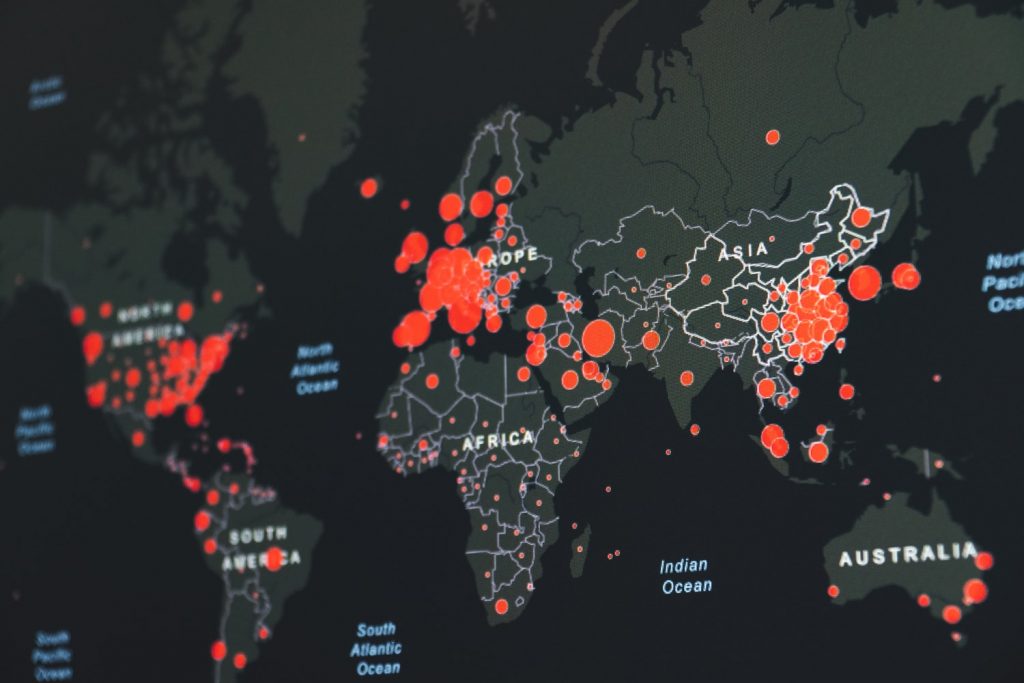Racism and coronavirus: two pandemics currently plaguing the U.S.
4 min read
As the coronavirus spreads internationally, we must remember we are all in this together. (Marina Sanchez | Unsplash)
By SHANE THIN
Staff Writer
Covid-19, known as the coronavirus, has spread at an alarming rate throughout the United States since February with an expectancy to peak in late 2020, according to models developed by Colombia and Imperial College. However, there is another disease that is spreading even faster: racism.
In times of crisis, people want a scapegoat—an outlet for their frustrations and fears—because it alleviates them from personal responsibility and allows the blame for all their problems to fall on one party, but this is not so simple with a faceless threat such as coronavirus.
A similar phenomenon, albeit one with fewer social consequences in the U.S., happened in 2014 with Ebola and the belief that it was an ‘African’ disease.
This time, Asian Americans are the scapegoat due to the perception that coronavirus is a ‘Chinese’ illness. Yes, it is true that the outbreak began in the Wuhan province of China, however, it is not true that Chinese Americans and other Asian Americans are more likely to spread the disease. It is not true that China has more diseases.
Despite this, according to the New York Times, Chinese restaurants in NYC’s three main Chinatowns in Brooklyn, Manhattan and Queens saw a 50-70 percent drop in business in the first half of February while other ethnic restaurants did not see that level of decline.
After China, Italy has the second-highest concentration of positive coronavirus cases, yet we can be sure absolutely nobody will be avoiding Italian food. Pizza, spaghetti, lasagna, gelato—many Americans would struggle to go for two weeks without these foods.
I argue that the social impact of this racism is even worse than that of the coronavirus, which equates to social distancing, quarantine and isolation. With racism, a group of people are guaranteed to have to suffer, whether they have the virus or not. This group can be somewhat easily identified and targeted by those that are overzealous and paranoid.
While we have heard of the more high-profile acts of racism against Asian Americans, such as the subway rant against a Thai woman in Los Angeles, more subtle acts go by unnoticed, yet still have an effect on students even here in the UMW community.
Andy Chen, a junior and art major, was scheduling a checkup for his younger brothers via phone. When the receptionist heard their Chinese surname, they asked additional questions concerning coronavirus, specifically when they last visited China and if they had left the States recently.
To both of these questions, Chen answered no and described common cold symptoms to the receptionist, to which they responded by instructing them to come in wearing masks anyway.
“This is the first time ever when scheduling a [sick appointment] that we were asked about this,” said Chen. “I understand the current state of things… it’s necessary precautions.”
Given how dire the situation had become over the last weeks, it might indeed be an additional measure by hospitals.
In another situation, Linda Silva, a student currently taking the spring semester off, works at a gym in Richmond where a customer called to suspend their membership due to the number of Asians at the gym.
“Someone called to freeze their membership because she was scared of the coronavirus. She said something along the lines of, ‘yeah, I noticed you have a lot of Asians there and it makes me uncomfortable,’” said Silva. The exchange happened between her Filipino coworker and an unnamed female customer, who relayed the details of the interaction to her.
As an Asian American myself, I have experienced little—if anything—of the sort, for which I am grateful. The only instance I can think of happened the week of classes being migrated to online, when a man asked if I was Chinese after I coughed in the Eagle Village parking lot.
I’m Burmese, therefore I answered no and he did not say anything else. I found the interaction to be quite comical. However, there are other Asian Americans who are facing much harsher consequences of fear-mongering, ignorance and racism.
In a time of crisis, being afraid is normal and being cautious is expected. However, acting irrationally, such as demonizing an entire race or panic-buying six years’ worth of toilet paper, is completely inexcusable. It is a shame to see a developed country—a world superpower, no less—regress into a ‘the strong survive, the weak die’ mindset when trouble brews.
These are all symptoms of a crisis: people want a scapegoat to blame. They want to feel in control of the situation. They want to look out for their own best interests. By pursuing these individual wants, they are ignoring the collective needs of society to overcome this problem.
Despite all this, the country is becoming more progressive, informed and diligent, and I am optimistic that we will be better prepared if there is ever another pandemic. For now, we can start by overcoming the racism against Asians because this is not a ‘Chinese’ virus. Coronavirus does not target based on race, and neither should we.












1 thought on “Racism and coronavirus: two pandemics currently plaguing the U.S.”
Comments are closed.